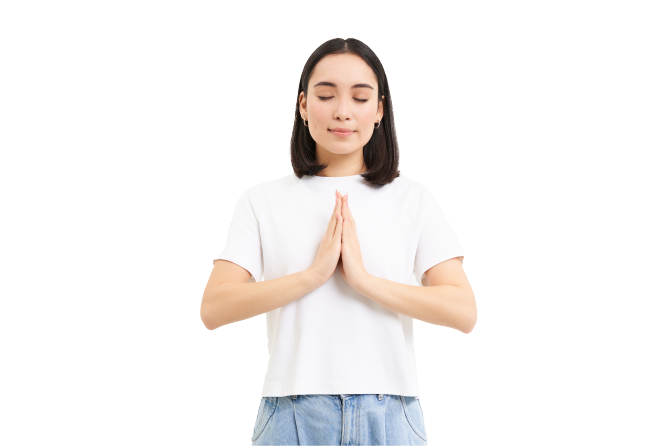Diet plays a fundamental role in Ayurvedic medicine. It is therefore important for well-being and health to adapt what we eat according to our Ayurvedic constitution, the season, our environment, our imbalances and so on. In Ayurveda, maintaining good health depends on balancing our agni, the digestive fire or digestive metabolism.
At the heart of this approach are specific foods and unique combinations, helping to support the proper functioning of agni. Among the gems of Ayurvedic cuisine are ghee and honey, which stand out as rasayanas, substances renowned for their regenerative properties. The judicious use of spices such as bilva, Indian ginger, curcuma longa and chai completes this nutritional philosophy.
In this article, we'll take a look at the Ayurvedic vision of diet and the different foods used in Ayurveda to balance the Agni, or digestive fire.
Ayurvedic nutrition: a daily ally
Ayurveda attaches great importance to diet, as it nourishes not only the physical body but also our psychological health, as physical well-being and mental health have always been inseparable. The traditional Indian diet thus promotes balance and harmony in daily life.
The Ayurvedic vision of nutrition is based on the fundamental principle that each individual is unique and has his or her own physical and mental constitution, called Prakriti, governed by the doshas. The doshas - Vata (air and ether), Pitta (fire and water) and Kapha (water and earth) - are the three energetic forces that govern the body's physiological and psychological functions.
According to Ayurveda, maintaining the balance of the doshas is essential to prevent disease and promote healthy living. Diet is thus seen as a powerful means of influencing these vital energies, and ensuring a strong Agni is a sign of good health. Ayurveda therefore proposes a personalized approach to nutrition, adapted to each person's individual constitution.
This is how this art of living links diet and the three fundamental doshas :
- Vata governs movement, creativity and communication. People dominated by Vata can benefit from warm, nourishing and balancing foods to counteract the dryness and restlessness associated with this dosha.
- Pitta governs digestion, metabolism and sensory perception. A cool, gentle and soothing diet is recommended to balance the heat and intensity associated with Pitta.
- Kapha controls stability, growth and hydration. Kapha individuals may favor light, spicy and stimulating foods to counterbalance the tendency to stagnation and heaviness associated with this dosha.
In Ayurveda, diet is a true daily ally in maintaining balance and optimal overall health.
Ayurvedic foods: bilva, ghee, Indian ginger, curcuma longa, organic tchai
As we have seen, Ayurveda considers diet to be an essential pillar of holistic health. Ayurvedic foods, including ghee, bilva, Indian ginger, organic tchai and curcuma longa, are categorized according to their energetic properties, flavors and effects on the doshas, to promote digestion, nutrient assimilation and physical and mental harmony. This unique approach integrates not only the nutritional aspects of foods, but also their impact on the body's subtle energies, to promote lasting vitality.
What is bilva ?
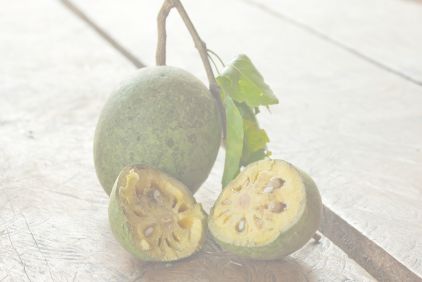
In the West, this aromatic tree is known as "bael" (or "maja"). Bilva grows naturally in India, Pakistan and Burma. It is a tropical fruit renowned for its beneficial properties in Ayurvedic diets. In Ayurveda, remedies are concocted from bael roots, leaves, fruit and seeds. Rich in lipids, carbohydrates and proteins, bilva soothes gastric pain and improves digestion.
It is particularly appreciated for its balancing virtues on the three doshas - Vata, Pitta, and Kapha. Because of its cooling and soothing qualities, bilva is often recommended to calm Pitta, reducing inflammation and promoting healthy digestion. For Vata, bilva offers support by providing a nourishing quality and helping to counter the dryness associated with this dosha. In addition, its slightly astringent properties can help balance Kapha by promoting lightness and preventing excessive accumulation.
What is Indian ginger ?
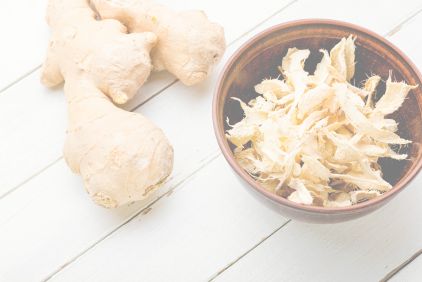
Andraka (or Indian ginger) is a plant that grows in tropical areas. Today, Indian ginger is renowned for its aphrodisiac properties and its tonic and stimulating effects. According to traditional Indian medicine, Indian ginger also aids the digestive process.
As a warming spice, Indian ginger is particularly appreciated for its soothing effect on Vata, helping to alleviate coldness and stimulate digestion. For Pitta, Indian ginger offers support by promoting digestion without excessively increasing heat. Although slightly warming, it can also be used in moderation for Kapha, as it can help eliminate excess mucus and stimulate metabolism.
What is ghee, Indian butter ?
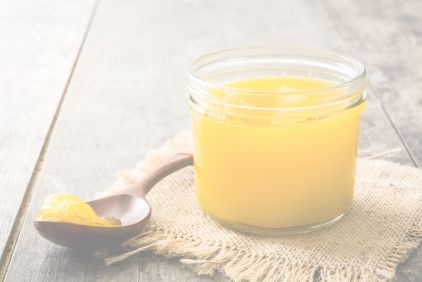
Ghee (or ghee) is a lactose-free, milk-protein-free "clarified" butter. Rich in fat-soluble vitamin A, it boosts the immune system and balances the metabolic process. It is also a source of vitamin E. This antioxidant vitamin helps protect the body's cells.
Ghee is a central component of the Ayurvedic diet, considered one of the main rasayanas, and recognized for its multiple regenerative benefits.
As a pure, clarified fat, ghee is considered soothing for Vata, offering a nourishing quality and soft texture that can help balance the dryness associated with this dosha. For Pitta, ghee is particularly beneficial as its cooling nature can help alleviate excess heat without compromising digestion. Although ghee is oily, it can be used in moderate quantities for Kapha, as its lightness and digestive properties can help counteract the heaviness associated with this dosha.
What is curcuma longa ?
Cultivated in India since ancient times, this spice first appeared in the West in the 7th century. Its name comes from the Sanskrit "kunkuma". Turmeric is an intense, fragrant aromatic. When the plant is ripe, the rhizomes are collected. Once dried, the underground stems are sliced and ground. A yellow powder is then extracted and cooked.
Turmeric longa's antioxidant and anti-inflammatory properties make it an invaluable ally for balancing the doshas. For Vata, longa turmeric's warming qualities can help soothe coldness and support healthy digestion. For Pitta, its cooling properties can help alleviate inflammation and maintain a balanced body temperature. Turmeric is also considered beneficial for Kapha, as it can help boost metabolism and eliminate excess mucus, promoting lightness.
What is chai ?
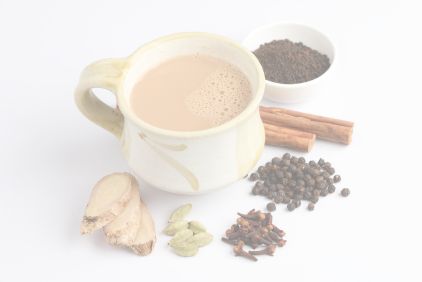
Chai is very popular in India and the West. This drink combines masala spices with tea. Masala is often composed of ginger, cinnamon, coriander, cloves or cumin. Ayurvedic practitioners generally add the mixture of spices and tea to boiling milk. They then filter the often sweet-tasting mixture. This beverage is said to improve heart health and possess anti-inflammatory properties, while also proving highly effective against stomach upsets and nausea.
The spices in organic chai have balancing qualities for Vata, providing warmth and aiding digestion. For Pitta, organic chai can soothe while offering pleasant, mild flavors. The stimulating properties of ginger and pepper in chai can also be useful for Kapha, promoting circulation and balancing the heaviness of this dosha.
Conclusion
Ayurveda sees nutrition as a means of restoring harmony between the doshas, supporting digestion and strengthening vital energy. This holistic approach to nutrition aims to promote physical, mental and spiritual health, taking into account the unique nature of each individual. By adopting the principles of Ayurvedic nutrition, we aspire to live in harmony with nature and cultivate lasting well-being.










